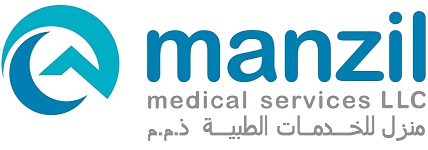Is It Possible To Develop Breast Cancer Whilst Breastfeeding My Baby?
Breastfeeding provides babies and young infants with all the nutrients they need for healthy growth and development. Whether it is a new mother or a seasoned parent, breastfeeding often comes with its fair share of concerns, one of which is “is there a risk of developing breast cancer while breastfeeding?”
It is possible to develop breast cancer while breastfeeding a baby, but it is a rare possibility. It is reported that only 3% of women develop breast cancer while they are breastfeeding. The months of pregnancy and breastfeeding decrease the number of menstrual cycles that a woman has in her lifetime, thus reducing her life time exposure to the hormone oestrogen, which can promote breast cancer cell growth. So this reduction is thought to REDUCE the risk of developing breast cancer.
It is quite normal for breastfeeding women to feel lumps in their breast and are rarely as a result of breast cancer. Some of the most common conditions other than breast cancer that can cause a lump in the breast while breastfeeding are –
- Mastitis – An infection of the breast tissue caused by bacteria or a blocked milk duct
- Abscess– A rare but dangerous complication of untreated mastitis.
- Fibroadenomas –These are noncancerous tumors that can develop in the breast.
- Cysts – Known as galactoceles, these small lumps contain milk and often disappear once lactation is complete.
With mastitis or an abscess there is localized pain and redness and the woman feels unwell with fever.
Although the appearance of lumps during breastfeeding is common and not a big concern, women should immediately consult their doctor if a breast lump does not go away, continues to grow, is fixed and hard to the touch or causes dimpled skin.
Early detection of breast cancer increases the chances for successful treatment and it can also lead to less aggressive treatments and improved outcomes. A mammogram or an ultrasound provides images of the lump and help your doctor determine if the mass looks suspicious. This may also be followed with a biopsy, which involves removing a small sample from the lump to test for cancer.
If a woman is diagnosed with breast cancer while lactating, in most cases, the doctor will recommend she stops breastfeeding because many breast cancer treatments can affect a woman’s milk supply or negatively impact the baby. The doctor will help to determine which treatment is best for an individual with breast cancer, as this can vary from person to person.
The doctor will also help patients decide which treatments are best as per the pregnancy stage and condition. The possible treatments include:
Surgery: Surgery may be necessary to remove a lump or cancerous growth. In some cases, this can involve a mastectomy (removal of the breast) or a double mastectomy (removal of both breasts). The extent of the surgery will determine whether or not the individual can continue breastfeeding.
Chemotherapy: Chemotherapy uses strong medications to destroy cancer cells within the body. Women who are having chemotherapy will need to stop breastfeeding.
Radiation: Some women undergoing radiation treatment may be able to continue breastfeeding, depending on the specific type of therapy. A doctor will be able to explain the risks to allow the individual to make an informed decision.
The diagnosis of breast cancer is devastating and particularly stressful for lactating mother and her breastfeeding infant. She requires the highest level of support and attention – both emotional and physical, ideally from a trained caretaker or nurse who can extend the best of care and support for both mother and the child.
Manzil Healthcare Services, the leading provider of medical services at home in the UAE, offers professional home care services, focusing on providing mothers the essential care required during the period that they need it the most. Manzil Healthcare is the first stand-alone home health organization that is accredited by Joint Commission International. The nursing and midwife services include: breastfeeding support and education, demonstrating care for the new-born baby, post-delivery wound care, as well as assistance with the physical, emotional, and social transformation after delivery and postpartum.
For more information call: 40388429 or email info@manzilhealth.ae or visit www.manzilhealth.qa


